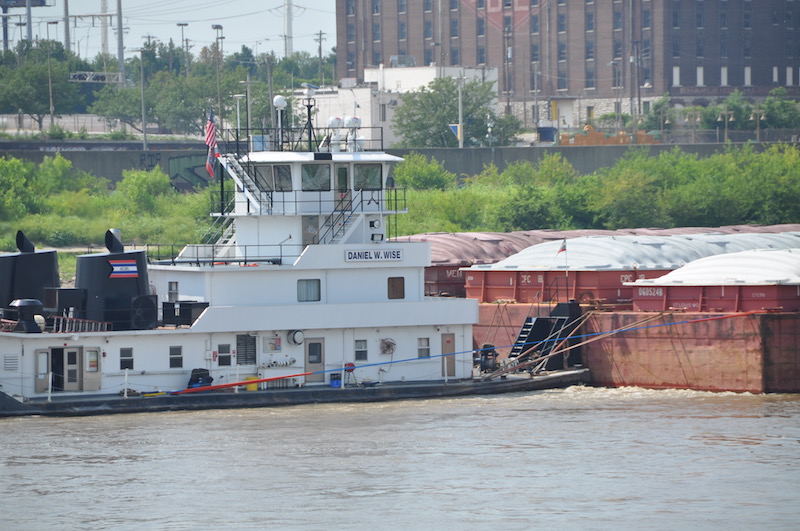Congress has given the first signs that it will reject the Trump administration’s proposed cuts for spending on inland rivers, locks and dams, as well as a proposed user fee on commercial barge operators.
The House Appropriations Committee on Wednesday approved a budget for the U.S. Army Corps of Engineers’ civil works program that ignores Trump’s request to trim $1 billion or 16% from the agency’s budget for fiscal year 2017.
Instead, the committee’s bill would provide $6.1 billion, which is $1.1 billion more than the president’s request and $120 million above the current spending level.
The waterways industry was especially pleased that House appropriators agreed to full use of the estimated $332 million in revenues from the Inland Waterways Trust Fund for inland projects. The IWTF is financed through federal tax revenue and a 29-cent per gallon tax on the diesel fuel used by barge operators.
The administration’s budget plan, released in May, proposed a “bare use spending” of the fund with money only for the Olmsted Lock and Dam project on the Ohio River. The Waterways Council Inc. (WCI), an industry-supported advocacy group, argued that IWTF money should also finance the many other priority projects to improve navigation along the nation’s aging inland locks and dam system.
The biggest winner under the House plan would be the Corps’ operations and maintenance account, which would receive a record-level $3.5 billion, $419 million more than the administration’s request and $370 million or 12% more than the current budget. Trump wanted to cut this account by $49 million or about 2%.
Another bright spot was funding $1.34 billion from the Harbor Maintenance Fund, which uses revenue from taxes on cargo loaded and unloaded at ports to pay for harbor dredging and maintenance. In the past, the fund was often used on other things than harbor activities. This amount is $40 million more than current levels, and would meet the full spending targets set in the 2016 Water Resources and Development Act.
Lawmakers also rejected a recycled user fee to be paid by commercial operators on the inland waterways. This fee had been proposed by previous administrations and continuously ignored by Congress. WCI said revenue from such a fee would generate an amount roughly equal to what is collected from the current fuel tax, suggesting an effective doubling of the recently enacted 29-cents-per-gallon tax. The group said this would place an unfair burden on commercial navigation because there are many other users of the river system.
The House bill also directs the Corps to analyze recent information and report back to Congress within 45 days whether emergency action is needed to keep the menacing Asian carp from reaching the Great Lakes.
The House spending package is “a true win for the nation’s inland waterways transportation system,” WCI President Michael J. Toohey said in a statement. “These outcomes also strengthen America’s family farmers, steel producers, manufacturers, coal miners and benefit U.S. consumers.”
The bill’s future is uncertain, however, given the lateness of the appropriations process. The Trump administration didn’t unveil its budget until May, putting the legislative appropriations process months behind schedule. This could mean that budgets for the Corps of Engineers and other federal agencies will be rolled into a “continuing resolution” in order to avoid a government shutdown if Congress can’t pass all 12 appropriations bills individually before the fiscal year runs out this fall. If this happens, agencies will operate on 2017 funding levels until the bills can be passed.




